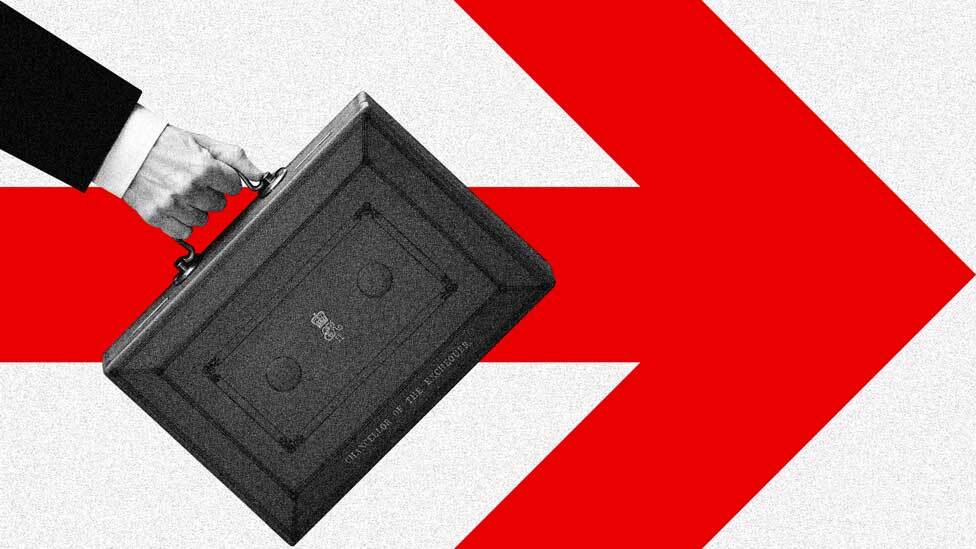A quick guide to the Autumn Statement
- Published
A quick guide to the Autumn Statement

It's time for another major money announcement - the Autumn Statement. If you don't regularly follow politics, are unsure how it works or how it affects you, here's a very simple introduction.
The Budget is the government's financial plan
The government decides how much money you will be taxed and where that money will be spent - and it announces the plans in a big speech in March every year.
The Autumn Statement is like a second Budget
The March Budget is supposed to be the main event and the Autumn Statement is an update half a year later on how things are going. But sometimes it's just as big and important, especially when things have changed a lot - like a new prime minister coming in for example.
It was announced that tax is going up
The government wants to raise more money to cover a big gap in its accounts, but doesn't want to be seen "raising taxes". Instead, it tweaked more complicated things like freezing tax thresholds and expanding the top rate of tax - but what it all means is that millions of people will have to pay more.
And there were cuts too
The government is telling its departments to be careful with spending - except the health department that runs the NHS. That's because experts say we're in a recession - and the amount of money in the economy is going to go down next year.
But it wasn't all bad news
There was good news for some people - like the National Living Wage going up by almost £1 an hour and benefits going up to match booming prices. The help with people's energy bills will continue next year, even if it's less generous than it has been.
It was the chancellor's first big speech
The UK's finance minister is called the Chancellor of the Exchequer (the exchequer is a fancy name for the government's bank account). Right now, it's Jeremy Hunt, who got the job just a few weeks ago - and his family went to parliament to see the biggest moment of his career so far.
This year's plan was delayed because of politics
Liz Truss's extremely short stint as prime minister included former chancellor Kwasi Kwarteng's "mini-budget" in September, and they had planned to follow it with an Autumn Statement on Halloween. But the September announcements plunged the country into political and economic uncertainty, so things got delayed until now.